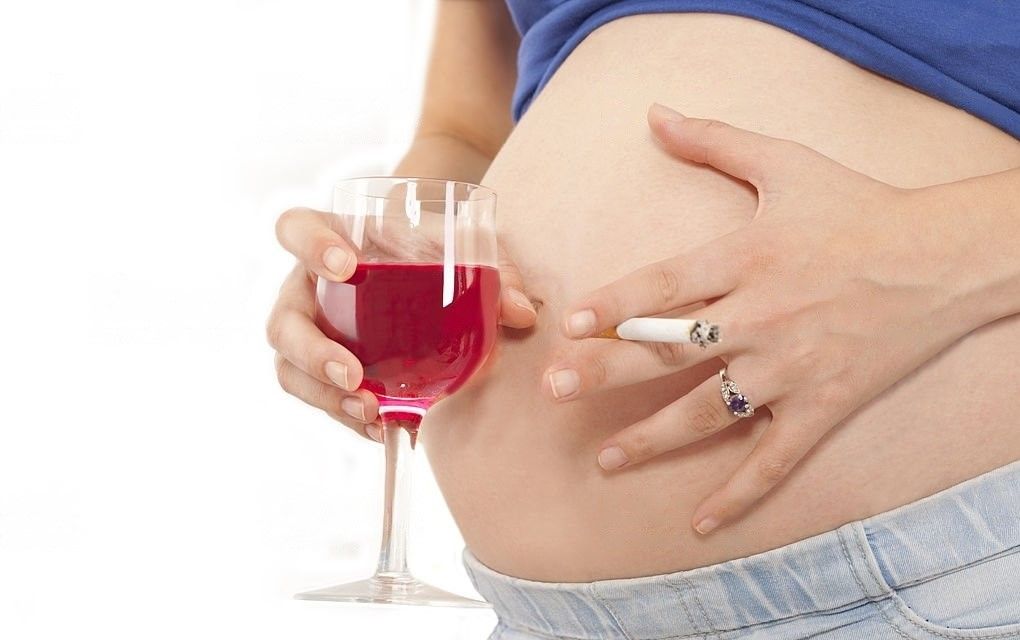The Impact of Smoking and Alcohol on Fertility and Pregnancy
You can improve your chances of having a healthy pregnancy by limiting the detrimental effects of smoking and alcohol on fertility and pregnancy.

Smoking and alcohol consumption are two of the most common unhealthy behaviors that can have negative effects on fertility and pregnancy outcomes. In this article, we will discuss the impact of smoking and alcohol on fertility and pregnancy, as well as ways to reduce these negative effects.
Smoking and Fertility
Smoking is a well-known risk factor for infertility in both men and women. It can reduce fertility by affecting the quality and quantity of sperm, as well as the function of the female reproductive system. Here are some ways that smoking can affect fertility:
- Reduced Sperm Quality: Smoking can cause DNA damage in sperm, leading to poor sperm quality and reduced fertility. It can also affect the size and shape of sperm, making it more difficult for them to swim and fertilize an egg.
- Hormonal Changes: Smoking can alter hormone levels, including testosterone, which can affect sperm production and quality.
- Decreased Ovarian Reserve: Smoking can cause a reduction in the number of eggs in a woman's ovaries, making it more difficult to conceive.
- Increased Risk of Ectopic Pregnancy: Women who smoke have a higher risk of ectopic pregnancy, where the fertilized egg implants outside of the uterus.
- Increased Risk of Miscarriage: Women who smoke have a higher risk of miscarriage, as smoking can affect the blood supply to the placenta.
Alcohol and Fertility
Alcohol consumption can also have negative effects on fertility in both men and women. Here are some ways that alcohol can affect fertility:
- Reduced Sperm Quality: Heavy alcohol consumption can reduce sperm count, motility, and morphology, leading to reduced fertility.
- Hormonal Changes: Alcohol consumption can alter hormone levels, including testosterone, which can affect sperm production and quality.
- Disrupts Ovulation: Alcohol consumption can disrupt the menstrual cycle and make it more difficult for women to ovulate.
- Increased Risk of Miscarriage: Heavy alcohol consumption during pregnancy can increase the risk of miscarriage and fetal alcohol syndrome.
Smoking and Pregnancy
Smoking during pregnancy can have negative effects on both the mother and the developing fetus. Here are some ways that smoking can affect pregnancy outcomes:
- Low Birth Weight: Babies born to mothers who smoke are more likely to have low birth weight, which can lead to health problems later in life.
- Premature Birth: Smoking during pregnancy can increase the risk of premature birth, which can also lead to health problems for the baby.
- Placental Problems: Smoking can affect the blood supply to the placenta, leading to placental problems and reduced oxygen and nutrients to the baby.
- Increased Risk of Stillbirth: Women who smoke during pregnancy have a higher risk of stillbirth.
Alcohol and Pregnancy
Alcohol consumption during pregnancy can have serious negative effects on the developing fetus. Here are some ways that alcohol can affect pregnancy outcomes:
- Fetal Alcohol Syndrome: Heavy alcohol consumption during pregnancy can cause fetal alcohol syndrome, which can lead to intellectual disabilities and physical abnormalities.
- Increased Risk of Miscarriage: Heavy alcohol consumption during pregnancy can increase the risk of miscarriage.
- Premature Birth: Alcohol consumption during pregnancy can increase the risk of premature birth and low birth weight.
- Placental Problems: Alcohol consumption can affect the blood supply to the placenta, leading to reduced oxygen and nutrients to the baby.
Ways to Reduce the Negative Effects of Smoking and Alcohol on Fertility and Pregnancy
The best way to reduce the negative effects of smoking and alcohol on fertility and pregnancy is to quit smoking and avoid alcohol consumption altogether. Here are some tips to help you quit smoking and reduce alcohol consumption:
- Seek Help: Quitting smoking and reducing alcohol consumption can be challenging, so it's important to seek help from a healthcare professional or support group.
- Create a Plan: Create a plan for quitting smoking or reducing alcohol consumption, and set a quit date. Make a list of the reasons why you want to quit and keep it with you to remind yourself when you feel tempted to smoke or drink.
- Avoid Triggers: Identify triggers that make you want to smoke or drink, and avoid them as much as possible. For example, if you usually smoke after a meal, try going for a walk instead.
- Practice Self-Care: Take care of your physical and emotional health by eating a healthy diet, getting regular exercise, and practicing stress-reducing activities like yoga or meditation.
- Surround Yourself with Support: Surround yourself with supportive friends and family members who will encourage you and help you stay on track.
- Consider Fertility Treatments: If you are having difficulty conceiving due to smoking or alcohol consumption, consider fertility treatments like in vitro fertilization (IVF) or intrauterine insemination (IUI).
SUMMARY
In conclusion, smoking and alcohol consumption can have serious negative effects on fertility and pregnancy outcomes. Quitting smoking and avoiding alcohol consumption altogether is the best way to reduce these negative effects. Seek help and support from a healthcare professional or support group, and practice self-care to improve your overall health and well-being. By taking steps to reduce the negative effects of smoking and alcohol on fertility and pregnancy, you can increase your chances of having a healthy pregnancy and baby.
Jayti Shah is a Clinical Nutritionist with a master's degree in Clinical Nutrition and Dietetics. She is a member of the Indian Dietetic Association (IDA). Over the last 9 years, she has helped 400 clients in their clinical and weight loss journeys. She works with SocialBoat as a nutrition consultant.
At SocialBoat, we offer custom diet plans and guided workouts to help you achieve your goals in a 360-degree approach. Our gamified experience ensures that you don’t find workouts boring and we reward you for being consistent with your efforts.

